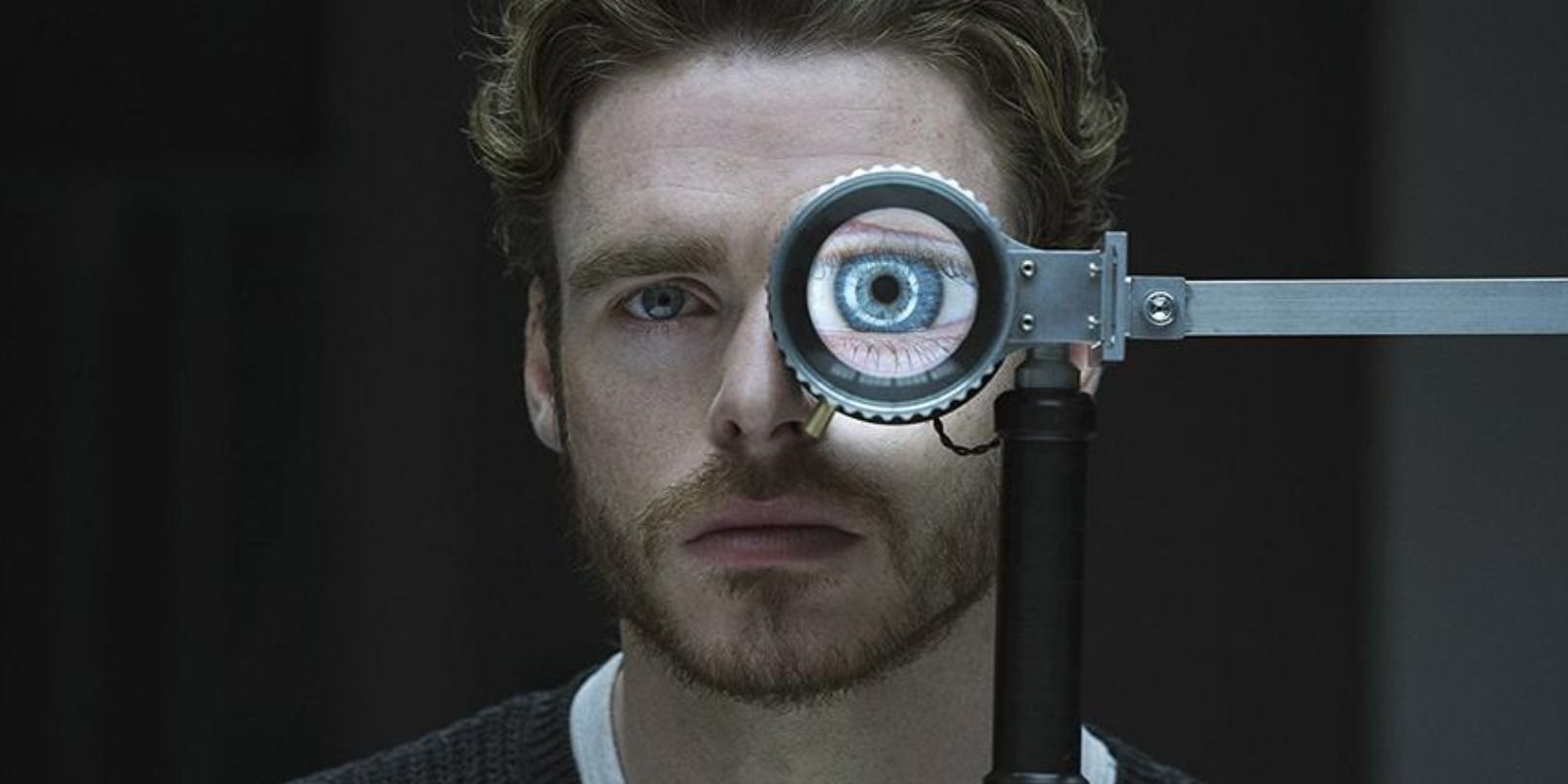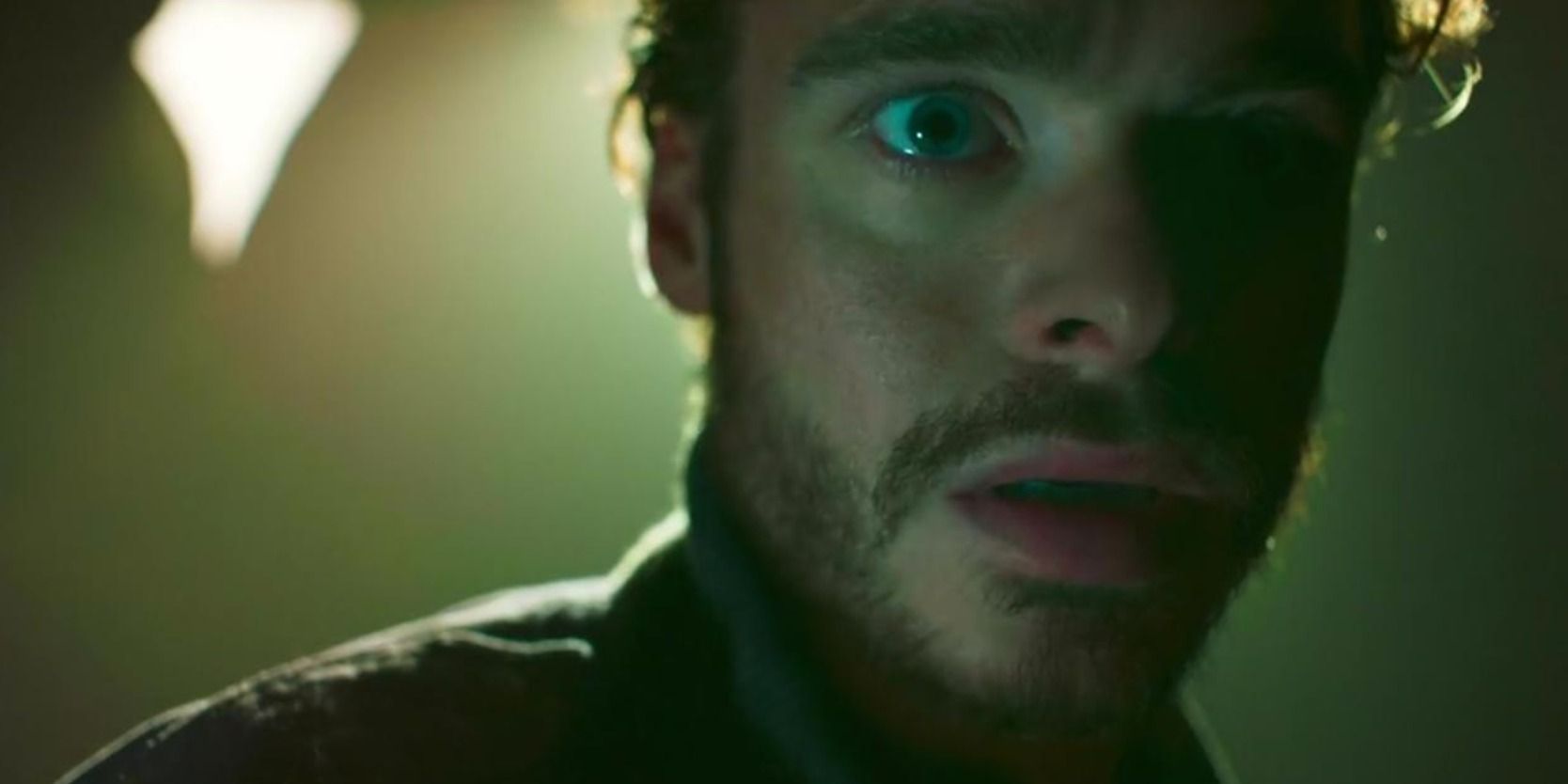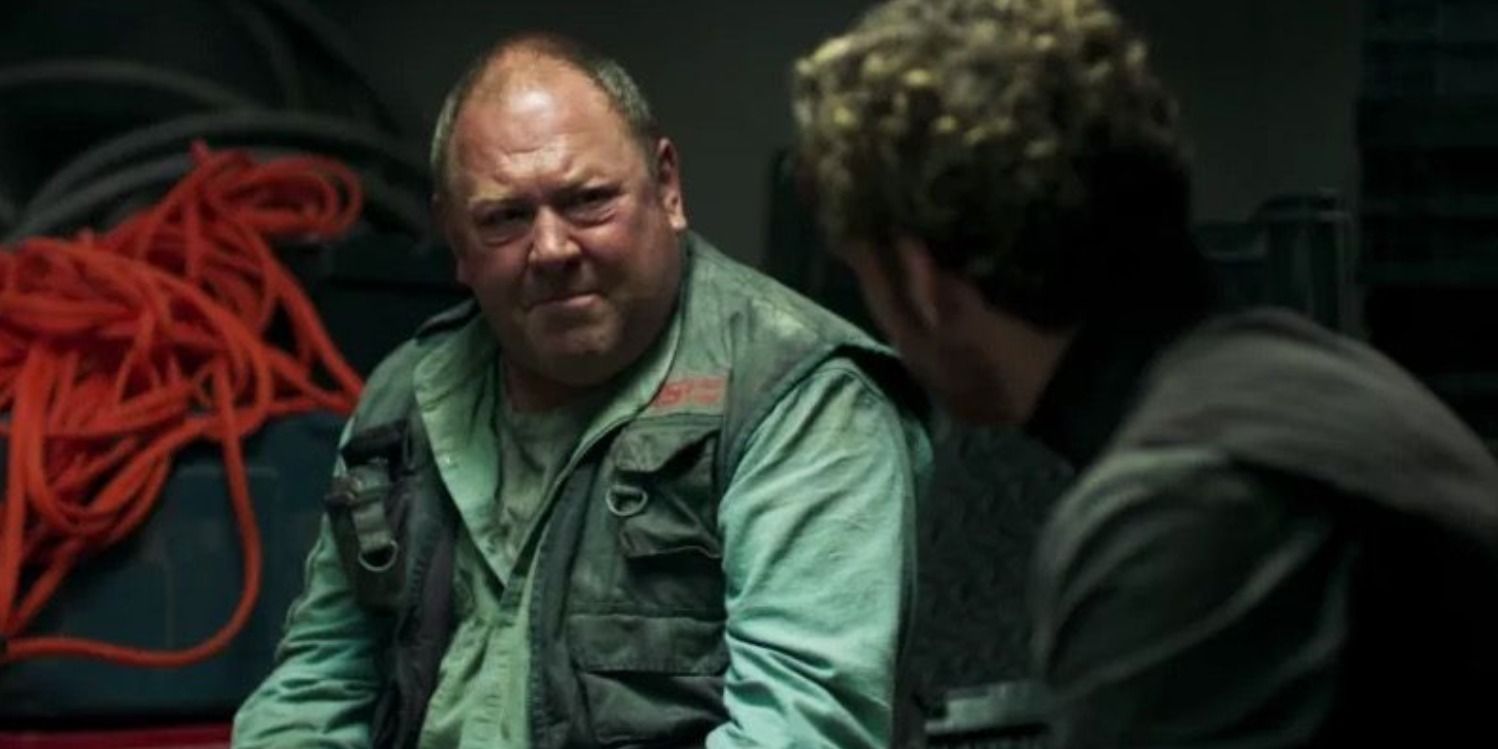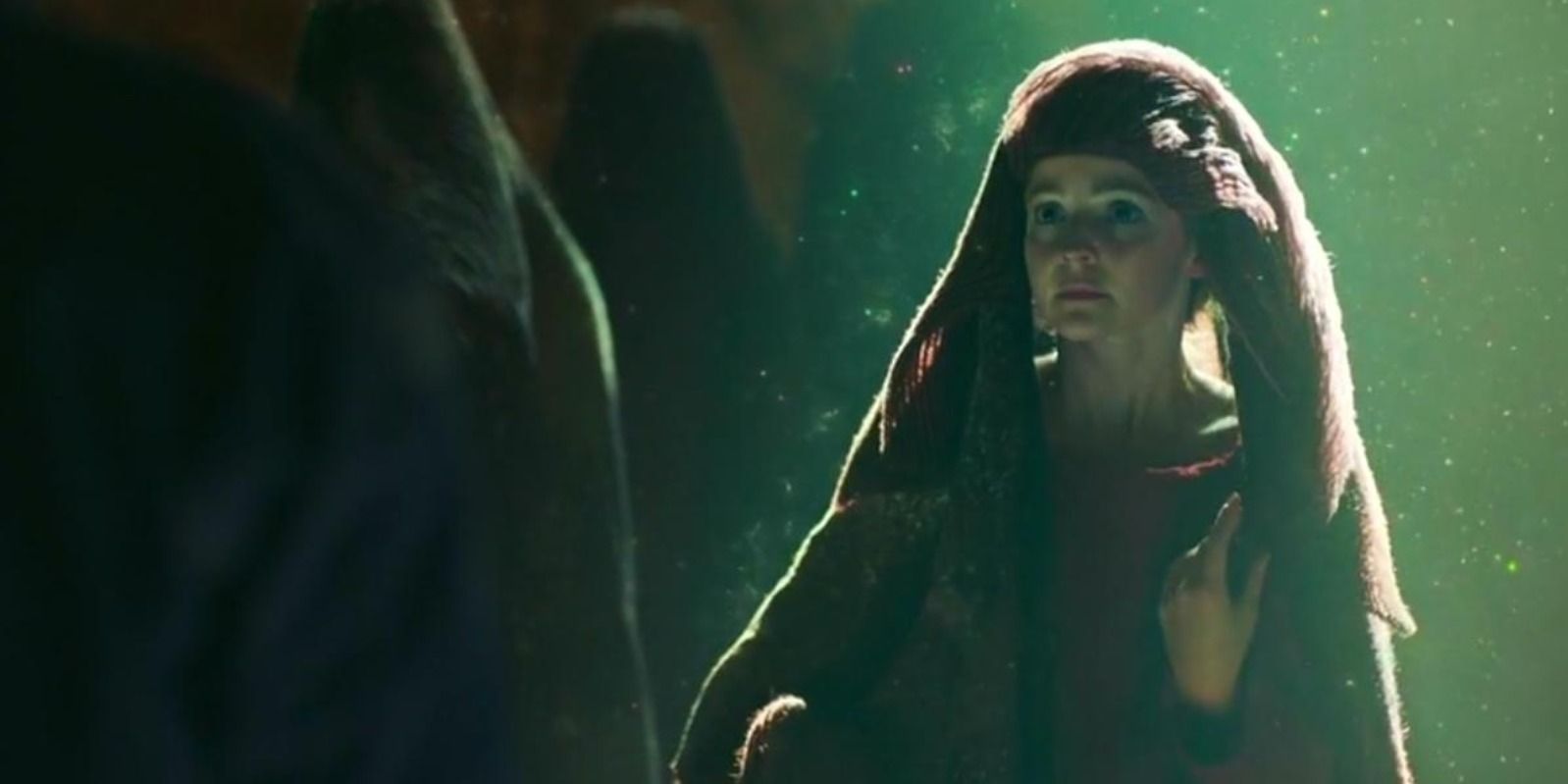
In the past, before Amazon Prime Video reached its current dominance as a streaming service, Amazon Studios selected new original series in an unusual manner they referred to as “pilot season.” During this period, they would create and release multiple first episodes of potential shows simultaneously. The success or failure of these pilots was determined by viewer responses, ratings, and reviews. Shows such as “Gilmore Girls,” “Transparent,” and “Mozart in the Jungle” were part of this process and went on to become popular series later. However, there were many promising shows that, despite their potential, did not proceed due to various reasons.
Among the many unfortunate losses under the old system was the 2017 sci-fi pilot, “Oasis”. Directed by Kevin Macdonald (of “The Last King of Scotland”) and featuring Richard Madden from “Game of Thrones“, this standalone episode, adapted from a highly praised novel, offers a gritty, psychologically complex, and profoundly human portrayal of space colonization. However, it’s hard to fathom why, despite receiving a remarkable 93% Audience Score on Rotten Tomatoes and generating significant interest, Amazon opted not to commission “Oasis” for further episodes. Even eight years later, this decision still leaves a sour taste, as it seems like a lost chance to create something that could rival the greatness of classics like “Solaris”.
Richard Madden Plays A Priest in Space
In just one pilot episode, it became evident to the audience that Oasis was unlike any other show. By the year 2032, Earth appears to be in a state of decay, with obvious signs of poverty and depleting resources. The series paints space colonization as humanity’s final chance for survival. The story revolves around a chaplain named , who is struggling to cope with the recent passing of his devoted botanist wife, Bea.
Peter finds himself in a predicament when he’s suddenly tasked with a crucial assignment: journeying to the far-off colony of Oasis. The founder of this settlement has vanished, and the remaining crew is plagued by mysterious, almost supernatural occurrences. Right from the start, there’s a mystery surrounding Peter’s role in Oasis, suggesting that he might be the ‘chosen one.’
In the series, the technology appears antiquated rather than modern or advanced. The rocket that transports Peter to space resembles outdated machinery, implying financial constraints and hope as the primary factors behind the mission. Upon landing, Peter’s descent capsule is quickly disassembled for spare parts, and he learns his return ticket is uncertain, contingent upon the end of his contract. This isn’t the gleaming, utopian future portrayed in Star Trek; instead, it’s a gritty, blue-collar struggle at the fringes of nowhere.
In this self-contained community, you’ll find a diverse group of individuals – engineers, botanists, and security personnel – who aren’t elitist ‘NASA-caliber’ geniuses. This setup fosters an authentic and suspenseful ambiance, with characters that seem like ordinary folks grappling with extraordinary pressures. The setting is fraught with intrigue, hinting at the complexities of religion, history, survival, and love in space exploration. As such, it’s brimming with ‘mystery factor’, making it an episode worth revisiting to uncover what unfolds in the next installment.
What If a Planet Could Read Your Soul?
Oasis Explored How Memory, Loss, and Guilt Haunt You in Space




The enigma at the heart of the Oasis pilot unfolds around the peculiar, eerie occurrences afflicting the settlers, culminating in the vanishing of the colony’s creator. It swiftly transpires that these aren’t ordinary specters; rather, the spectral appearances seem to be vivid representations of each colonist’s most distressing memories, remorse, and sorrows. This proved to be a potent and insightful strategy for crafting a supernatural tale.
In a different phrasing: Engineer Halloran, portrayed by Mark Addy from Game of Thrones, is not disturbed by an arbitrary apparition, but rather deeply troubled by a specific, harrowing recollection of a horse named “Terminator” that he heartlessly eliminated due to selfishness many years prior. Another crew member is plagued by spectral images of the daughter she abandoned on Earth. The entities in Oasis aren’t supernatural; they are tangible representations of the team’s most devastating traumas and past experiences, brought to life in this bizarre new realm.
Indeed, this concept holds a distinct spiritual bond with its cinematic interpretations, in which a conscious planet compels human adventurers to grapple with holographic reflections of their deceased loved ones and past wounds. In these narratives, an extraterrestrial entity appears to function as a psychological reflection, compelling each character to face the very burdens they had traveled across galaxies to flee. This theme is particularly significant for Peter Leigh’s persona.
In a 2017 interview, Richard Madden acknowledged that he was captivated by Peter’s “unmistakable strength and unpredictability.” However, the numerous religious tattoos on his body suggest a turbulent past hidden beneath his role as a man of God. With his wife Bea now deceased, Peter finds himself lost at sea. The enigmatic occurrences on the show Oasis compel him to face his grief head-on, as he too starts experiencing apparitions of his late spouse. This ordeal tests his faith in a realm where traditional religion might hold no significance, creating a compelling narrative centered around character development.
A Look at the Story Oasis Never Got to Tell
The first episode, while packed with detail, merely hinted at the profound and intricate tale found in Michel Faber’s novel, “The Book of Strange New Things.” Although it was based on this book, the show started off by making a significant alteration to the original storyline: Peter’s spouse, Bea, is depicted as already deceased. In contrast, the novel portrays Peter saying goodbye to his living wife before embarking on his journey, and their strained relationship unfolds through interstellar messages, serving as the narrative’s emotional heart.
In the series, we find Peter initially portrayed as a mourning individual, which intensifies the hardships and struggles of his journey to Oasis. This transformation gives depth to Peter’s character by rooting it in immediate sorrow, but it remains unclear how this altered beginning would resonate with the other captivating storylines from the novel. The pilot indicates that Peter’s ties to Earth have been severed, as he seldom discusses his past or the broken world he departed from.
The story proceeds to delve into how Peter adapts to his life in space, focusing on his experiences of hallucinations, unusual occurrences, and his ongoing battle with faith, which are the main subjects of the book. Therefore, it’s plausible that the series would have expanded more on Peter’s interactions with the indigenous inhabitants of the planet, the Oasans. The novel depicts them as tender, almost infant-like creatures with fetus-like faces and a peculiar hissing language, leading simple agricultural lives.
The most notable aspect of them is their profound and literal commitment to Christianity, which they learned from a past missionary, causing them to identify themselves as “Jesus Lover One,” “Jesus Lover Two,” and so forth. The series had the potential to delve into Peter’s life as he became deeply immersed with them, constructing a church for them and coming to appreciate their delicate and tranquil personalities. It appears that the writers and producers of the show had plans for Peter’s future. Prior to its cancellation, Madden revealed his aspirations for the series in an interview with a magazine, expressing:
One intriguing subplot centers around a heart-wrenching truth concerning the Oasans’ religion. Eventually, Peter uncovers that their unwavering trust in Jesus’ miraculous healings is rooted in their physical inability to recover from minor wounds themselves. This predicament poses a moral dilemma for Peter, as he grapples with the authenticity of the faith he is propagating. For the series’ portrayal of Peter, a mourning priest who was already doubting his own religious convictions following his wife’s demise, this disclosure would have served as an even more profound trial of his beliefs.
The series, Oasis, would have unfolded against the shadowy presence of USIC, a corporation whose clandestine objective – to build a sanctuary for Earth’s elite when our planet perishes – was subtly suggested in its debut episode. The cancellation of this show leaves a poignant void, as it had the potential to explore deeply moving narratives that resonate deeply. Although it may have been compared to heavyweights like Solaris, Oasis held its own merits, particularly when considering the complex and atmospheric storylines derived from its original novel. However, its abrupt end after only one episode is disheartening, a wasted chance for the creation of more thought-provoking, rich, and atmospheric science fiction, a genre often in scarcity.
Read More
- Brawl Stars December 2025 Brawl Talk: Two New Brawlers, Buffie, Vault, New Skins, Game Modes, and more
- Clash Royale Best Boss Bandit Champion decks
- Best Hero Card Decks in Clash Royale
- Call of Duty Mobile: DMZ Recon Guide: Overview, How to Play, Progression, and more
- Clash Royale December 2025: Events, Challenges, Tournaments, and Rewards
- Best Arena 9 Decks in Clast Royale
- Clash Royale Witch Evolution best decks guide
- Clash Royale Best Arena 14 Decks
- Brawl Stars December 2025 Brawl Talk: Two New Brawlers, Buffie, Vault, New Skins, Game Modes, and more
- Decoding Judicial Reasoning: A New Dataset for Studying Legal Formalism
2025-07-05 01:06